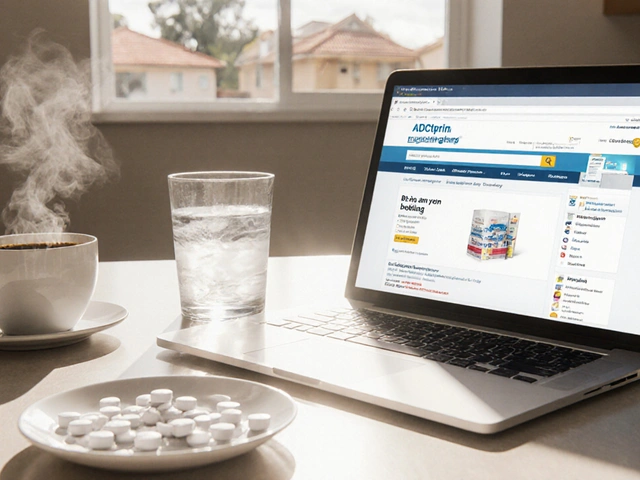Managing allergies during pregnancy isn’t just about comfort-it’s about safety. Around 1 in 3 pregnant people deal with allergic rhinitis, hives, or conjunctivitis, and many need medication to breathe, sleep, or function normally. But not all allergy drugs are created equal when you’re expecting. Some are safe. Others carry risks you can’t afford to ignore. The key isn’t avoiding meds altogether-it’s knowing which ones to use, when, and how.
First Trimester: The Critical Window
The first 12 weeks of pregnancy are when the baby’s organs are forming. That’s why doctors urge caution with any medication during this time-even ones you’ve used safely before. The goal? Avoid anything unnecessary. For mild allergies, start with non-drug options: saline nasal sprays, HEPA filters, keeping windows closed during high pollen season, and washing your face and hair after being outside. These simple steps can cut symptoms by half for many people.If you need something stronger, nasal corticosteroids are your best bet. Rhinocort (budesonide) has the most data supporting its safety during early pregnancy. Studies tracking over 200,000 pregnancies found no link between budesonide and birth defects. Flonase Sensimist (fluticasone furoate) and Nasonex (mometasone) are also considered low-risk. But avoid Nasacort (triamcinolone)-there’s not enough evidence to say it’s safe, and some animal studies show potential harm.
Second and Third Trimesters: More Options, Still Caution
After week 12, the risk of major birth defects drops significantly. That opens the door to more medication choices-but not all are equal.Oral antihistamines are commonly used. First-generation ones like diphenhydramine (Benadryl) and chlorpheniramine (Chlor-Trimeton) have been around for decades. Multiple studies, including one from the American Academy of Family Physicians in 2014, show no increase in birth defects. But they come with a downside: drowsiness. If you’re already tired from pregnancy, this can make things worse.
Second-generation antihistamines like cetirizine (Zyrtec) and loratadine (Claritin) are non-sedating and preferred by many patients. They’re considered safe after the first trimester. Zyrtec is often dosed at 10 mg once daily. Claritin at the same dose. Both have large studies backing their use, though the data isn’t quite as extensive as for Benadryl. Fexofenadine (Allegra) is also used, but it’s labeled Pregnancy Category C by the FDA-meaning animal studies showed some risk, but human data is limited. Most doctors still consider it acceptable if needed, but it’s not the first choice.
Now, here’s the big red flag: decongestants. Pseudoephedrine (Sudafed) was once thought to be safe after the first trimester. But newer research shows it’s linked to a 2.4 times higher risk of gastroschisis-a rare but serious abdominal wall defect-if taken during weeks 6 to 12. Even if you’re past that window, it can raise blood pressure, which is dangerous in pregnancy. The Mayo Clinic updated its guidance in December 2023 to say: if you absolutely must use it, limit it to 30-60 mg every 4-6 hours, no more than 240 mg total per day, and only in the second or third trimester. Never use it if you have high blood pressure.
Phenylephrine, found in many cold and allergy products, is even less studied. It’s also Pregnancy Category C and not recommended. And don’t be fooled by labels like “Claritin-D” or “Zyrtec-D.” The “D” means it contains pseudoephedrine. Avoid those entirely.
Nasal Decongestant Sprays: Short-Term Only
Sprays like Afrin (oxymetazoline) can give quick relief from nasal congestion. But they’re not meant for long-term use-even if you’re not pregnant. Using them for more than 3 days can cause rebound congestion, making your nose even more stuffed up. In pregnancy, the risk is higher because your blood vessels are already more sensitive. The American College of Allergy, Asthma, and Immunology advises avoiding them unless absolutely necessary. If you do use one, stick to 3 days max and talk to your provider first.
What About Allergy Shots?
If you were already getting allergy immunotherapy (shots) before you got pregnant, you can usually keep going. Studies show no increased risk to the baby. But starting shots during pregnancy? Don’t. Your immune system is already adjusting, and introducing new allergens could trigger a reaction that’s dangerous for you and the baby. Wait until after delivery to begin treatment.Asthma and Allergies: Don’t Underestimate the Connection
About 8% of pregnant people have asthma. Poorly controlled asthma is far more dangerous to the baby than most allergy meds. Inhaled corticosteroids like fluticasone or budesonide are safe throughout pregnancy and should be continued if you were using them before. Oral steroids like prednisone should only be used if absolutely necessary and under close supervision. Never stop your asthma meds without talking to your doctor-uncontrolled breathing problems can reduce oxygen to the baby.What to Avoid Completely
Here’s a quick list of medications to skip during pregnancy:- Nasacort (triamcinolone) nasal spray
- Pseudoephedrine (Sudafed) in the first trimester; use with extreme caution later
- Phenylephrine (common in OTC cold meds)
- Any product labeled “-D,” “Multi-Symptom,” or “All-in-One” (they almost always contain decongestants)
- Sustained-release or extended-release antihistamines (they release the drug slowly, increasing exposure)

Real-World Advice: What Doctors Actually Do
Dr. Matthew Ziff, an OB/GYN at Nebraska Medicine, says: “One of the medications we particularly like to avoid is pseudoephedrine. It’s been possibly related to some birth defects in the first trimester. And it can raise your blood pressure-something we’re already watching closely in pregnancy.”Dr. Purvi Parikh, an allergist, adds: “Antihistamines can be very helpful for itching, runny nose, or watery eyes. But the benefit must be weighed against any risk. Most of the time, the benefit wins.”
That’s the pattern: start with the safest option. Use the lowest dose for the shortest time. Avoid combination products. And always check with your provider-even if you think a medication is “safe.”
What’s New in 2025?
The FDA stopped using the old A, B, C, D, X labels in 2018. Now, drug labels include detailed narratives about risks and benefits. But many doctors and websites still use the old system, which can cause confusion. Look for phrases like “no increased risk of birth defects” or “limited human data available.”Right now, the National Institutes of Health is running a major study-the Pregnancy Exposure Registry-tracking over 15,000 women who took allergy meds during pregnancy. Preliminary results are expected in late 2024, and the American College of Allergy, Asthma, and Immunology plans to update its guidelines in early 2025 based on this data. So what’s safe today might be refined tomorrow. Stay informed, but don’t panic.
Bottom Line: What to Do Today
- First trimester: Try saline rinses, air filters, and allergen avoidance first. If you need meds, use Rhinocort nasal spray or Benadryl (if drowsiness isn’t an issue).
- Second and third trimesters: Cetirizine (Zyrtec) and loratadine (Claritin) are your go-to oral options. Avoid decongestants unless your doctor says it’s necessary and you’re past week 12.
- Always check labels: Skip anything with “-D,” “Multi-Symptom,” or “Decongestant.”
- Don’t stop asthma meds: Uncontrolled asthma is riskier than most allergy drugs.
- Ask your doctor: Even if you think a medication is safe, confirm it’s right for your specific situation.
Allergies don’t disappear during pregnancy. But with the right tools, you can manage them safely. You don’t have to suffer. And you don’t have to guess. Just know the facts, pick the safest option, and keep talking to your care team.







Joe Durham
20 Nov, 2025
Really appreciate this breakdown. I was freaking out about my seasonal allergies in the first trimester and almost went without anything-turns out saline sprays and keeping my windows shut made a huge difference. No need to panic if you need a little help.
Derron Vanderpoel
21 Nov, 2025
OMG I JUST TOOK ZYRTEC-D LAST WEEK AND DIDN’T EVEN REALIZE IT HAD PSEUDOEPHEDRINE IN IT 😭 I’M SO SCARED NOW. MY DOCTOR SAID IT WAS FINE BUT NOW I’M READING THIS AND MY HEART’S RACING. IS IT TOO LATE??
Christopher Robinson
22 Nov, 2025
Don’t panic, Derron 😊 Zyrtec-D is only risky if taken in the first trimester, and even then, the risk is small. You’re past that window if you’re in your second or third trimester. Talk to your OB-they’ll probably just tell you to switch to plain Zyrtec going forward. You’re doing great by paying attention.
Michael Salmon
24 Nov, 2025
Wow. So much fearmongering. ‘Avoid pseudoephedrine like the plague’? Bro, it’s been used for decades. You think every mom who took Sudafed in the 90s had a baby with gastroschisis? No. The risk is statistically negligible. This post reads like a lawsuit waiting to happen, not medical advice. Stop scaring pregnant people into suffering through nasal congestion because some FDA bureaucrat got nervous.
Brian Rono
24 Nov, 2025
Michael, you’re the reason people die in maternity wards. You reduce complex pharmacology to ‘it’s been used for decades’ like that’s a valid argument against peer-reviewed epidemiology. The 2.4x increase in gastroschisis isn’t ‘statistically negligible’-it’s a clinically meaningful signal. And no, ‘decades of use’ doesn’t override prospective cohort data. You’re not a rebel-you’re a liability. Also, ‘bureaucrat’? Cute. The FDA didn’t make this up. Real doctors, real data, real babies.
Timothy Reed
26 Nov, 2025
Both perspectives have merit. The data on pseudoephedrine is concerning enough that guidelines have shifted, and as clinicians, we err on the side of caution when fetal development is involved. But we also recognize that many women need relief. The key is informed choice: know the risks, weigh them against your symptoms, and consult your provider. No one-size-fits-all answer here.
harenee hanapi
27 Nov, 2025
Oh my god I’m so glad I found this. I’ve been taking Claritin-D since week 6 and now I’m crying because I didn’t know. My husband is so mad at me. I didn’t even read the label. I just saw ‘Claritin’ and thought it was safe. Now I feel like the worst mom ever. I’m going to stop everything and just breathe through it. I deserve this punishment.
river weiss
27 Nov, 2025
It is imperative to emphasize that the cessation of the FDA’s A-B-C-D-X classification system has not diminished the importance of evidence-based decision-making in obstetric pharmacotherapy. The transition to narrative labeling requires greater patient literacy and provider diligence. The data supporting budesonide and cetirizine remain robust, while the evidence concerning pseudoephedrine, though limited in human studies, demonstrates a consistent signal in multiple large-scale registries. Caution, not fear, is the appropriate response.
Christopher K
29 Nov, 2025
Oh look, another liberal, overcautious, science-by-press-release guide. In my day, pregnant women took Sudafed, cough syrup, and aspirin like candy-and we turned out fine. Now we’ve got moms sobbing because they took one pill? Get a grip. This isn’t medicine-it’s woke fear porn. Go drink some honey water and stop listening to influencers who think ‘Category C’ means ‘death sentence’.